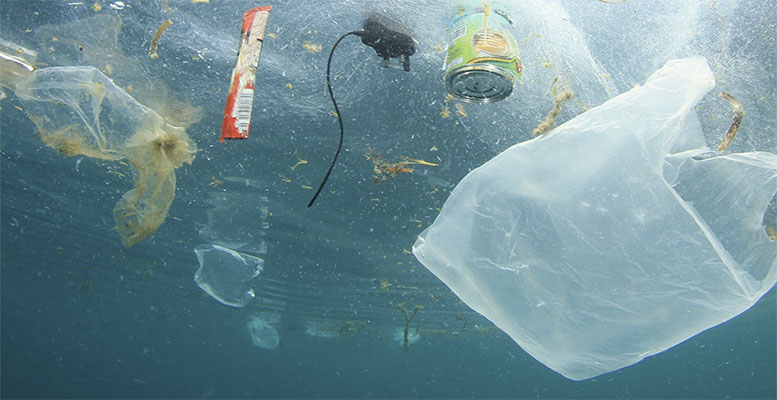Portocolom | The perception of the problem of plastic in the oceans dates back at most two decades, with images of seas turned into gigantic dumps of bottles and other packaging. But recent research claims that since 1950, microplastics have been present in fish and consequently in humans when they consume fish. In other words, organisms have been exposed to this waste since it was invented. A University of Chicago study examined historical patterns of microplastic consumption by fish in the past, which is critical for predicting future trends. Microplastics were measured in digestive tissues of fish collected between 1900 and 2017 from museum collections by dissecting the digestive tissue and examining it under a microscope and spectroscope to detect the chemical composition of the particles. No microplastics were detected in any fish before 1950, which coincides with the industrialisation and mass manufacture of these materials. From this date onwards, the amount of these plastic particles in the digestive tracts skyrocketed. The current pandemic has accentuated this contamination by plastics: masks, gloves, food packaging, etc., worsening the situation that we already had. 75% of this plastic will find its way into landfills and the sea. A serious cost to the environment and the economy.
Reducing plastic waste by 70% by 2030 is the aim of the draft Waste Law and to achieve this it includes two taxes on plastic and the obligation to offer tap water in hotels and restaurants, amongstother measures. The Council of Ministers has given the green light to the draft Law on Waste and Contaminated Soil, and it is pending in the Parliament. This bill will increase municipal waste recycling rates by five percentage points every five years from 2020, while reducing food containers and single-use plastic cups by up to 70% by 2030. The new regulation is aimed at boosting a circular economy, restricting single-use plastics as well as the market introduction of certain products and incorporating two new taxes aimed at “preventing” waste generation. The regulation establishes the obligation for hotels and restaurants to “always” offer their customers the option of tap water instead of bottled water. And for public administrations to reduce the use of bottled water in their premises and public spaces, except in health centres, where single-use containers will be allowed. In addition, the text contemplates actions against food wastage, with the aim of reducing 50% of discarded food. The new law will be another tool to move from a linear to a circular economy. The change will mobilise a lot of EU resources and, according to Commission estimates, these investments will require 2.5 billion euros between now and 2035.





